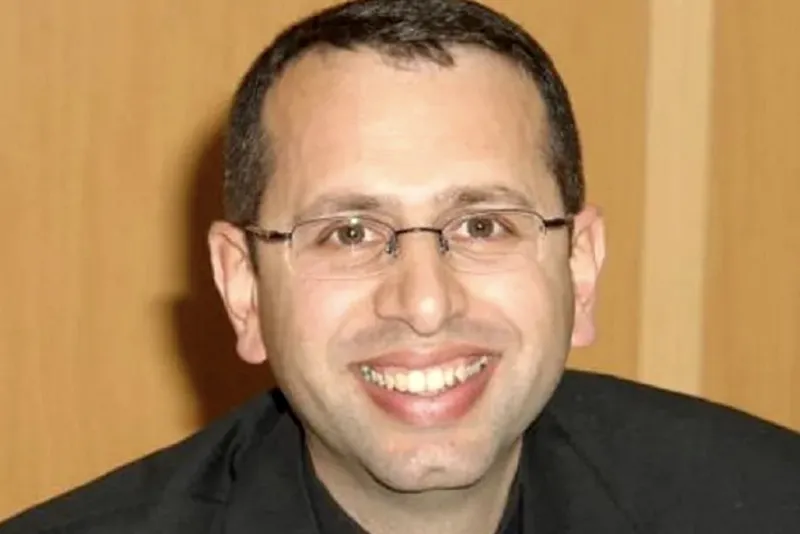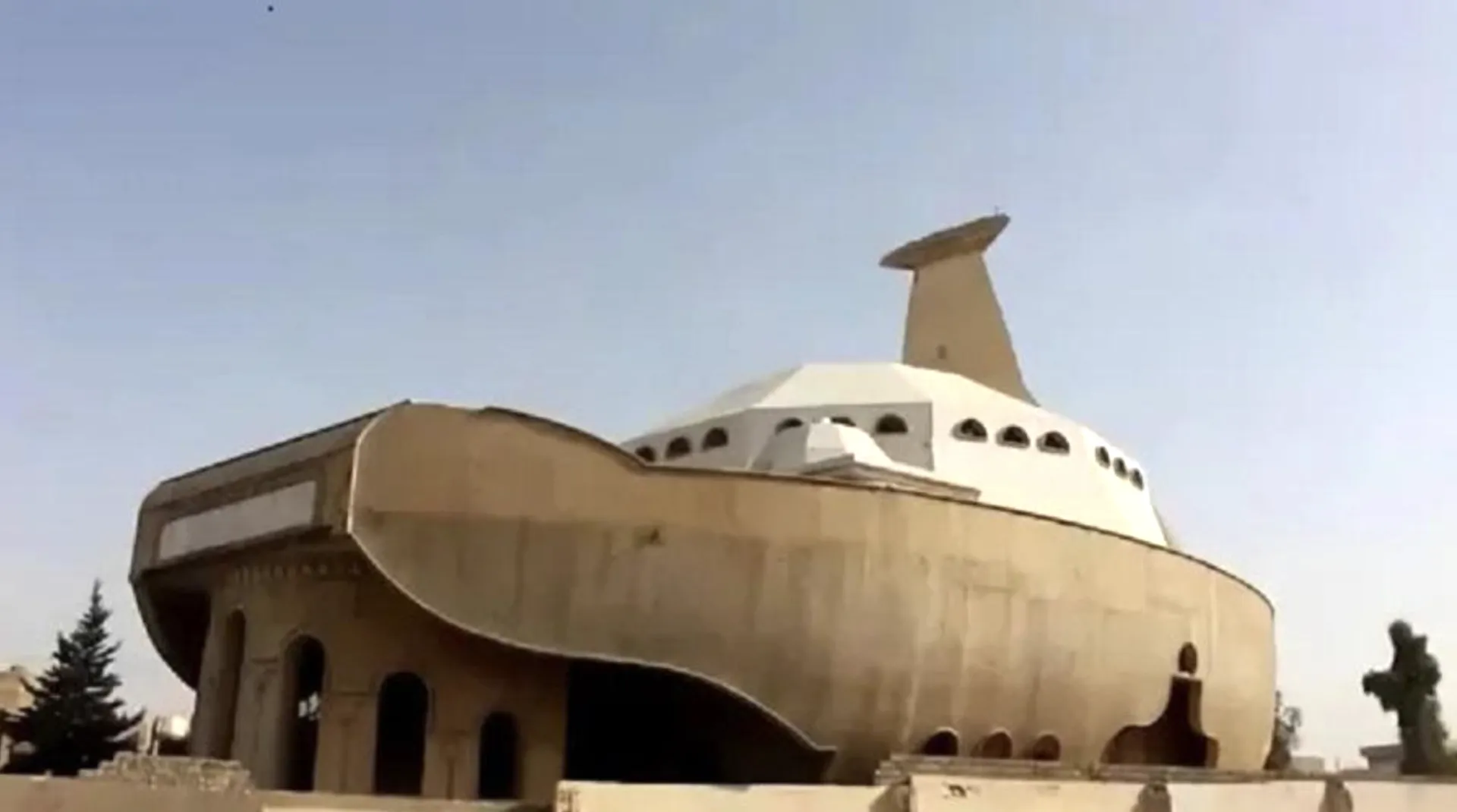
Erbil, Iraq, Aug 19, 2022 / 02:40 am (CNA).
It has been fifteen years since the martyrdom of Father Ragheed Ganni, the Chaldean priest of the Holy Spirit parish and the secretary of the Bishop of Mosul, the martyr Archbishop Faraj Rahho. Father Ganni may soon be given the title ‘blessed.’
Father Ganni, considered one of the most influential martyrs of the Catholic Church in Iraq, was killed by fanatical terrorists on June 3, 2007, after celebrating the Divine Liturgy in the Church of the Holy Spirit in Mosul.
“Simplicity of spirit and zeal for the faith.” These words were used to describe Father Ganni by the Chaldean Archbishop of Erbil, Bishop Bashar Warda, when he met him in 1997 in Ireland. Archbishop Warda continued: “When Father Ragheed was asked to volunteer to serve the pilgrims who came to pray and seek advice at the Shrine of Love Derg, he accepted the invitation and brought happiness and joy to all of our hearts.”
Archbishop Warda stressed that the martyred Father Ragheed was very close to the youth. He always accompanied them and conducted activities that motivated them and helped them strengthen their spirituality and ecclesiastical knowledge. He added: “I have always admired his leadership and his closeness to them. He was a father, a brother, and an educator for all of them.”
The life of Father Ragheed Ganni
Father Ragheed was born in Mosul in 1972, where he completed his university studies, graduating with a bachelor’s degree in civil engineering. He had loved the Church since childhood and learned its liturgical rites and melodies. He decided to devote his life to the Church in the sacred priesthood. . Bishop Georgios Jarmo sent him to Rome in 1996 to begin his priestly formation journey. He studied at the Irish Institute and continued his studies in theology at the University of Saint Thomas Aquinas.
He had a strong desire to return to Mosul and serve the believers and members of his Church who were in tribulation due to the persecution of extremist Islamic groups since 2003. His wish was granted; he returned to Mosul and committed himself to serving its people, in addition to teaching at the Babylon College of Philosophy and Theology, in 2004.
During this period, the city of Mosul suffered from campaigns of intimidation, kidnapping, and killing of Christians, in addition to bombing many churches and monasteries. Many people were forced to seek refuge and escape to other cities and villages in northern Iraq, and many families were forced to migrate to other countries, fearing for their lives and their faith.
These challenges were not an obstacle to Father Ragheed, who continued all pastoral activities, celebrated Masses in the various churches in his diocese, and provided moral and spiritual support to his church children even in the most challenging times.
Father Ragheed constantly said: “The terrorists want to end our lives, but the Eucharist gives us life. When I hold the cup of the Eucharist in my hands, I say: This is the Lamb of God who takes away the sins of the world. I feel His power overwhelm me. I hold the cup in my hand, but He is the one who holds me and us all, defying the terrorists and making us united in His boundless love.”
He emphasized more than once in his conversation with those close to him that he would continue to spread the message that obligated him to be a missionary in the name of Christ, saying: “The terrorists think that they are killing us physically or scaring us spiritually with their brutal methods. Many Christian families have fled because of the abuses committed against them, but the paradox is that we have come to realize, through the violence of terrorists, that the dead and risen Christ gives us life. This gives us hope and helps us survive every day.”

The martyrdom of Father Ragheed Ganni
The threats directed at Father Ragheed continued because of the various activities he led with the youth in the Church. His ministry angered the terrorist groups in Mosul, and death threats began to emerge.
On the third Sunday of June 2007, the terrorists arrested him after he celebrated the Divine Liturgy with three deacons: Basman Yusef Daoud, Waheed Hanna Isho, and Ghassan Essam Bidawid. At that time, the terrorists asked him: “Did we not ask you not to open the church for prayer?” He replied, “How can I close the House of God in the face of worshipers?”
These were the last words uttered by Father Ragheed Ganni, days before he became a martyr for Christ and his Church.
The last prayer of Father Ganni
Father Ragheed Ganni realized that the Islamic terrorists would not let him live, given his disobedience to their orders and his continued celebration of the liturgy in Mosul, so he wrote his last prayer on October 12, 2006:
“Lord, I don’t think they will look at my prayer
Although it was a pessimistic prayer, everyone knew me as an optimist.
And perhaps, for a moment, they forgot. They wondered why I was so optimistic,
They have seen me smiling, braver and stronger in the most difficult situations.
But, when they remember the times of trouble I lived,
and the hardships I’ve been through,
The ones that showed how weak I am and how capable you are
You revealed how fragile I am and how strong you are,
They will know that I, my hope, have always spoken of you
Because I knew you, and you were the reason for my optimism
Even when I knew my death was near,
But let me be with you now,
May I please put it before you,
You know better than I what time we are living.
I am a human being and know how weak a person is.
I want you to be my strength so that I will not allow anyone to insult me in the priesthood that I hold.
Help me not to weaken and surrender myself in fear for my life
Because I want to die for you, to live with you and with you.
Now I am ready to meet you; help me not to lose time for trial
Because I told you that I knew man, but I also said that I knew you
Oh, my strength, my power, my hope.”
If you value the news and views Catholic World Report provides, please consider donating to support our efforts. Your contribution will help us continue to make CWR available to all readers worldwide for free, without a subscription. Thank you for your generosity!
Click here for more information on donating to CWR. Click here to sign up for our newsletter.




Leave a Reply